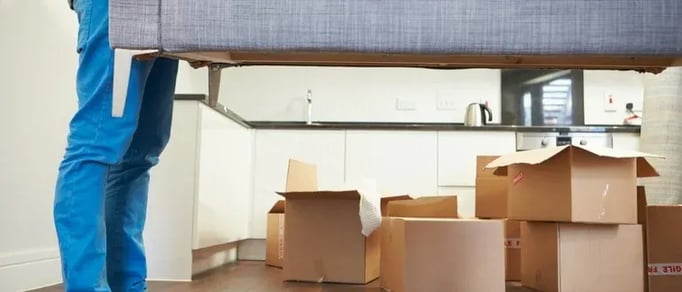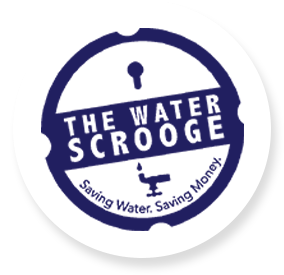3 min read
5 Things Great Property Managers Do That Others Don't
![]() David Schwartz
Sep 28, 2016 9:00:00 AM
David Schwartz
Sep 28, 2016 9:00:00 AM

Historically speaking, tenants dislike property managers and property managers dislike tenants. Visit any rental forum online and you'll find no shortage of tenants complaining about management. Likewise, find a message group of property managers and you'll see advice being exchanged on how to deal with problematic renters!
So, what gives? Where is the love?
The reality is, not all tenants are irresponsible miscreants—just like not all property managers are heartless drones. Though there are undoubtedly individuals who perpetuate these stereotypes on both sides, the real problem is one of leadership.
Property managers who adopt hands-off leadership styles run into more problems than those practicing pro-active communication.
Think about it: If the only time you reach out to tenants is when something is wrong, what are you teaching them to associate you with? Hassles, problems, and inconveniences.
In this article, we'll reveal the five things great property managers do to build happier rental communities.
1. Create a Sense of Community
Do you need to be best friends with your tenants? No, we wouldn't advise it. But would it benefit everyone to know one another a little better? Absolutely.
Each year, renters reevaluate whether or not they want to continue living on your property.
Lease renewal generally depends on 3 factors:
- Responsiveness of maintenance teams
- Lifestyle preferences (location, cost of rent etc.)
- Overall unit and property satisfaction
As a property manager, you may assume your influence is limited to factor no. 1, but that isn't true. By creating a sense of mutual respect, friendliness, and trust you can greatly enhance overall satisfaction.
Does creating a sense of community mean hosting drum circles on the lawn every weekend?
No, it can be as simple as personalizing correspondence, posting memos, learning names ,and hosting the occasional "know your neighbor" event. Anything that helps create a sense of home.
2. Routinely Ask for Feedback
Another important aspect of proactive management is asking for feedback. While you and your staff may have many ideas about what renters want, you don't actually know until you ask. The easiest way to get feedback is to create a survey system.
Some residents will prefer the convenience of an electronic survey via email. For others, that might just get lost in an already crowded Inbox. Cover your bases by sending your survey in both formats to all tenants. Aim for a mixture of scale, multiple choice, and fill-in-the-blank options. And keep them short! Here are some possible questions to ask:
- How satisfied are you right now with [Apartment Name]?
- How satisfied are you with the responsiveness of maintenance staff?
- How satisfied are you with the quality of work conducted by maintenance?
- What would make this apartment community a better place to live?
- Which of these amenities do you use the least? Why?
The important thing? Make sure to follow-up!
Act like you care and then don't do anything and you'll be worse off than you were before.
Consider organizing responses in a public report and distributing it to tenants. Include time lines and measures for the implementation of feedback.
3. Follow Up With Maintenance Religiously
Speaking of follow-up, it's especially important to do in regards to maintenance requests.
Maintenance grievances are routinely listed as the number one reason for lease non-renewal. The best property managers create great organizational systems for request management:
- Organize requests as they come in by name, date, and priority level.
- Let tenants know when you have received their requests.
- Send an estimated time period for completion.
- Reach out and ask if the tenant is satisfied (if you really want to stand out here, try a phone call).
Additionally, schedule routine inspections of maintenance repairs as they are completed. If you notice certain types of repairs aren't meeting standards, arrange an expert-led educational seminar for your team.
4. Maintain a Focused Attention to Detail
Does your entrance sign need power washing?
Are there scratches on hallway walls?
Is the dumpster repeatedly filling up beyond capacity two days before pick-up?
These are the things you need to notice. Though each of the aforementioned examples may seem small on their own, add them together and you've got a dump in the making. Unfortunately, it's easy to overlook certain blemishes once we're accustomed to our environment.
Assign a different team member to tour the property each week and report their findings. Use a checklist so nothing gets overlooked. And finally, schedule a time to address identified issues.
5. Think Ahead
Running an apartment building involves managing many moving parts: Serving maintenance requests, arranging apartment tours, drawing up lease agreements for new tenants, checking out old tenants, organizing service vendors, and much more.
The best property managers think ahead. They instantly know their top priorities for the week, month, quarter, and year ahead.
Do they have the power of super-memory? Nope, just efficient organizational systems. What works for one person, might not work for another. But the bottom line is to figure out a system that excites you. That could be digital calendars, paper planners, or a mixture of both. You may also want to group your tasks into umbrella categories (i.e. Marketing, Business Operations, Customer Service).
Don't Be Ordinary—Be Great
Property managers are a dime a dozen. But the ones who are the most successful are the ones who engage in high-level strategy. If you want your community to flourish, you've got to create systems that set you up for success.
The secret? Treating your property like a business and your tenants like customers.
Though it may seem obvious, we often forget that happy tenants equal happy pocketbooks. Because:
- Happy tenants don't move (unless they get a job elsewhere or undergo a major lifestyle change);
- Happy tenants don't write negative reviews (sometimes they even write positive ones); and
- Happy tenants will often work with you to do things like conserve water usage.
Establish the above habits, and you're on your way to creating a more satisfied rental community. Don't be surprised if that translates into more lease renewals and less turn-over!




